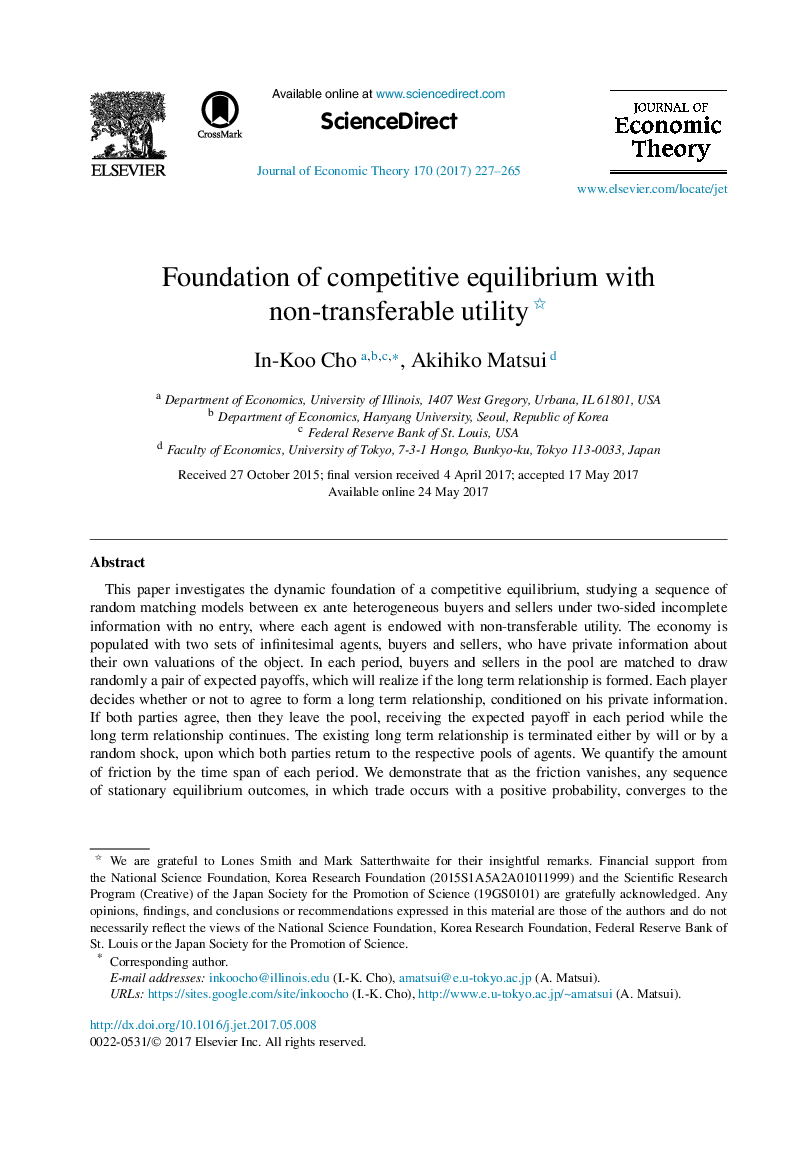| Article ID | Journal | Published Year | Pages | File Type |
|---|---|---|---|---|
| 5100080 | Journal of Economic Theory | 2017 | 39 Pages |
Abstract
This paper investigates the dynamic foundation of a competitive equilibrium, studying a sequence of random matching models between ex ante heterogeneous buyers and sellers under two-sided incomplete information with no entry, where each agent is endowed with non-transferable utility. The economy is populated with two sets of infinitesimal agents, buyers and sellers, who have private information about their own valuations of the object. In each period, buyers and sellers in the pool are matched to draw randomly a pair of expected payoffs, which will realize if the long term relationship is formed. Each player decides whether or not to agree to form a long term relationship, conditioned on his private information. If both parties agree, then they leave the pool, receiving the expected payoff in each period while the long term relationship continues. The existing long term relationship is terminated either by will or by a random shock, upon which both parties return to the respective pools of agents. We quantify the amount of friction by the time span of each period. We demonstrate that as the friction vanishes, any sequence of stationary equilibrium outcomes, in which trade occurs with a positive probability, converges to the competitive equilibrium, under a general two sided incomplete information about the private valuation of each agent.
Related Topics
Social Sciences and Humanities
Economics, Econometrics and Finance
Economics and Econometrics
Authors
In-Koo Cho, Akihiko Matsui,
